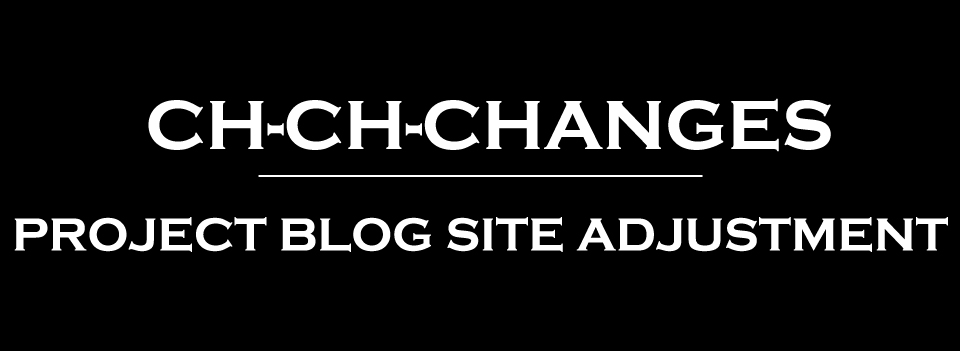I discovered this link through Warren Ellis’s blog. As a paraphrase of what it’s about–though I encourage you to read it–it basically says that blogs have now been geared toward getting traffic via catchy headlines and, simply, have become a complete defeat of what blogging was meant to be, which is merely a place for someone to log their thoughts and personal items and create content of interest without getting all gimmicky about it.
The argument put forth over at Ribbon Farm is a compelling one, especially to someone like me who hates the pursuit of money and fame and popularity. (If those things are an honest byproduct of what you do, that’s different. I’m talking about making those things one’s goal(s) as the error).
The idea of writing a blog where, even if it had just an audience of one (me), is tantalizing. I’m very anti-establishment by nature and tend to see the strings in what people are doing (especially in the creative industry). It all comes off as so flimsy and childish. I’m not knocking my fellow creators but am talking straight to whomever this entry here at Canister X and over at Ribbon Farm speaks to. Should a person not be of interest through genuine organic efforts instead of a blatant attempt to sell a product? Shouldn’t who they are be more important than what they make? When did an inorganic object of extremely limited value replace a person whose value is limitless? Something’s not right here.
I’ve always been partial to the random, the underground, the unique. Maybe because those are my roots and are a constant theme in my work (taking an idea and trying something new with it, consequences be damned). There has always been a soft spot in my heart for that guy or girl with an obscure blog from some other part of the world, the kind of blog you read where you don’t know if you’re the only audience member or not.
Capitalist culture would call blogging for no one a wasted effort because it doesn’t–or is unlikely to–yield a financial result.
This is foolish.
Running a blog isn’t about money despite what the marketers tell you (who want you to visit their blog for information so they can sell you something).
Blogging is about showcasing a life in thought, word, and deed. Blogging is about honesty. It’s about talking to the world about anything that interests you or is on your mind and heart.
I might not have always succeeded, but since I’ve been back after being ill, I’ve made every effort to showcase myself and what I do and talk to you honestly through my blog entries and newsletter. Sometimes you might have enjoyed what you read, other times not. And that’s okay. I’ve been doing this long enough to know I won’t hit a chord with everyone. The magic is in the honesty. The magic lies within you, dear reader, when you commit the simple act of reading regardless of how you feel about what you’re reading. It’s the fact that you did take the time to read the words of a person you only know through a screen. And maybe that’s the secret right there? Taking the time to read the words of a person–a very real person with a physical body and mind and heart and spirit–whom you never met. Like I always say, time is the most valuable thing a person has and its wealth surpasses anything we can compare it to. The fact that a person takes that precious commodity and spends it on you is magic.
Here at Canister X, the Realm of Heroes and Monsters, there is a certain blogging style, a way of communicating that’s in a constant state of adjustment and fine-tuning but one that has a core that has been in place long enough that you know what to expect from me. If I segue into experimental blogging styles, I hope you come along for the ride. Or I might start a new blog where I can fiddle with blogging conventions until I find a method I like and is an honest expression of myself. Time will tell.
In the end, it does indeed dismay me that blogs are often started as business ventures versus public journals. I get the reasoning behind it, but it doesn’t sit right and that’s probably because it replaces a person with a commodity and, in the end, it’s our replacement of people for commodities that caused the world to be in the state it is currently in.










